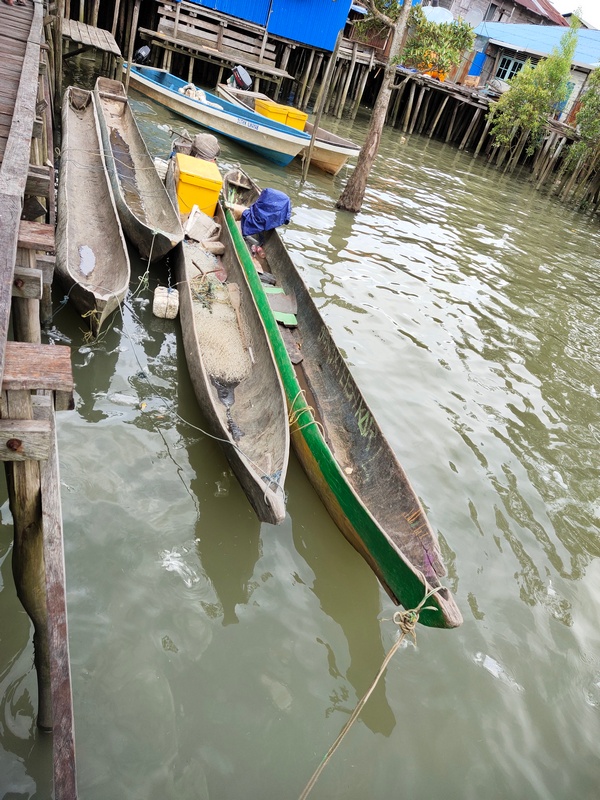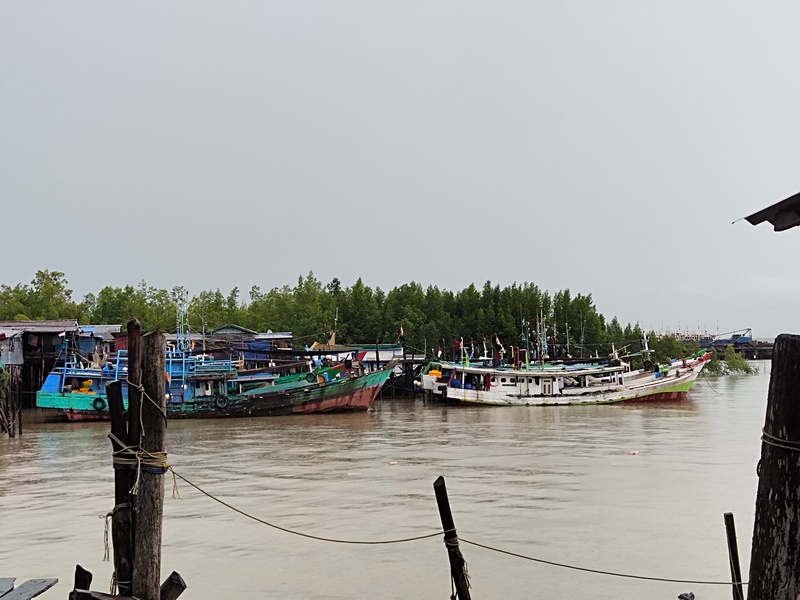A local fisherman from a village on the Southern coast of Merauke is casting a net from his boat, looking to catch some fish for his family’s dinner. Several large vessels appear on the horizon, heading towards the area where he’s fishing. They’re clearly not from Merauke, so are not permitted to fish in these waters. In recent years, this has become an increasingly common sight for the fishermen of Merauke.
The productivity of fisheries in the Arafura and Timor Seas (ATS) region is essential to food security for the region’s inhabitants. However, fisheries and marine resources in the ATS are under increasing pressure from illegal, unregulated and unreported (IUU) fishing activities. Recent data and information collected from the field indicate that illegal fishing and other criminal activities are still taking place in the fisheries sector. This includes evidence of blast fishing, cyanide fishing, transhipment, the use of unregulated fishing gear and unregistered vessels, and the capture of protected species.


According to Destructive Fishing Watch (DFW) Indonesia’s coordinator, M. Abdi Suhufan, “The current issue is that there are numerous vessels that are unregistered, or those with expired registration licenses, as well as those registered only to fish in the Maluku province, are conducting fisheries operations in the waters of Papua and West Papua.” DFW also stated that “the presence of illegal fisheries ports such as those found in Aru and Merauke are suspected to enable vessels to avoid fisheries regulations related to permits, fisheries data collection and fuels, as well as worker rights.” In addition, the Ministry of Marine Affairs and Fisheries (MMAF) have stated that foreign vessels from neighbouring countries can still be encountered illegally entering and fishing in these waters.
As part of efforts to address these issues, the Papua provincial government issued a decree in 2020 (Papua Governor’s Decree No. 188.4/228/2020) that set a mandate for the establishment of the Papua Fisheries Law Enforcement Coordination Forum. Since then, and with support from the ATSEA-2 Programme, the Papua provincial government has joined forces with local fisheries stakeholders to combat these problems. On 30 July 2021, the Papua Fisheries Law Enforcement Coordination Forum was officially established.
Tasked with coordinating investigation processes against criminal activities related to fisheries, this forum will liaise between different law enforcement agencies, thereby facilitating more widespread and coordinated action in response to threats. Members of this forum include key provincial and local-level stakeholders, including, among others, the Fisheries Agency, Environment and Forestry Agency, Transportation Agency, Police and Navy. Part of the forum’s remit will be to help manage the flow of information and data between these various stakeholders, synergising their understanding in relation to fisheries law enforcement and ensuring that policies are put into practice.
By supporting the Papua Fisheries Law Enforcement Coordination Forum, the GEF/UNDP/PEMSEA ATSEA -2 Programme is helping to increase the effectiveness of law enforcement activities against fisheries crime in the waters of Papua province, especially in Fisheries Management Area (FMA) 718. The ATSEA-2 Programme will continue to assist and engage with the forum, through facilitation of discussions and capacity building for the forum’s members. With support from the ATSEA-2 Programme and in collaboration with local communities, the Forum would work to address issues related to IUU fishing and other fisheries-related crimes, with the aim to improve the management of fisheries stocks in the waters of Papua within the ATS region.
(Nara Wisesa)


